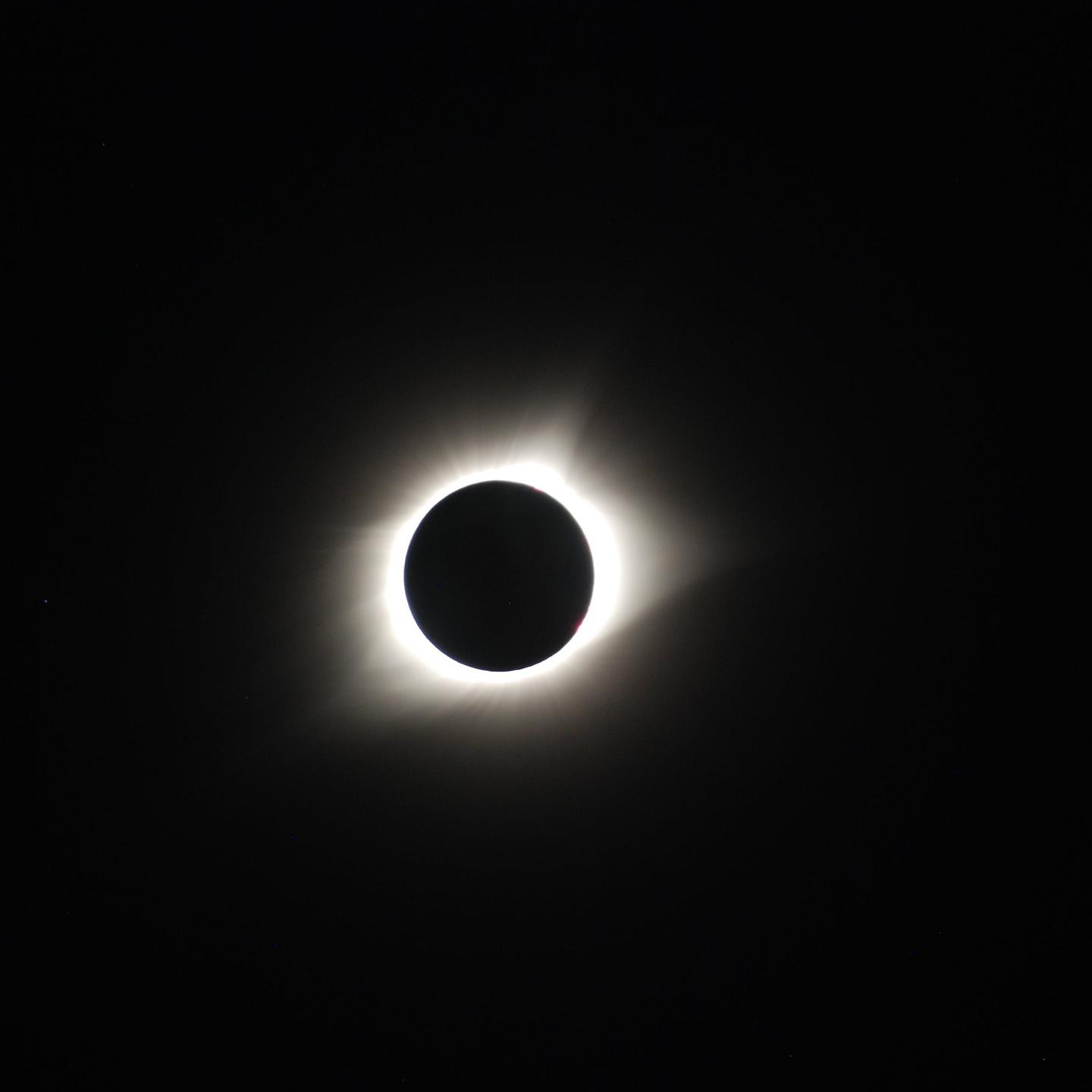On April 8, 2024, a total solar eclipse will pass over the United States, Mexico, and Canada - it is the only total solar eclipse that can be viewed from the contiguous U.S. for the next twenty years.
UR has experts available now who can explain the science of solar eclipses, discuss X, Y, Z, and more.

Total Solar Eclipses
Physics professor Jack Singal, an astrophysicist who has worked at NASA, is available to discuss the total solar eclipse, which will cross North America on April 8, passing over Mexico, the United States, and Canada.
“There are three main reasons people are interested in seeing a total solar eclipse. First, it’s rare, so the opportunity to see one doesn’t come along very often. Two, it’s a very interesting thing to witness when it gets very dark in the daytime. And three, during a total eclipse, we're able to see the outer layers of the sun that we usually can't because the rest of the sun is just so bright. A total eclipse creates an ambiance of bizarre lighting that is just not available in other circumstances.”

Total Solar Eclipses
Physics professor Jack Singal, an astrophysicist who has worked at NASA, is available to discuss the total solar eclipse, which will cross North America on April 8, passing over Mexico, the United States, and Canada.
“There are three main reasons people are interested in seeing a total solar eclipse. First, it’s rare, so the opportunity to see one doesn’t come along very often. Two, it’s a very interesting thing to witness when it gets very dark in the daytime. And three, during a total eclipse, we're able to see the outer layers of the sun that we usually can't because the rest of the sun is just so bright. A total eclipse creates an ambiance of bizarre lighting that is just not available in other circumstances.”

Total Solar Eclipses
Physics professor Jack Singal, an astrophysicist who has worked at NASA, is available to discuss the total solar eclipse, which will cross North America on April 8, passing over Mexico, the United States, and Canada.
“There are three main reasons people are interested in seeing a total solar eclipse. First, it’s rare, so the opportunity to see one doesn’t come along very often. Two, it’s a very interesting thing to witness when it gets very dark in the daytime. And three, during a total eclipse, we're able to see the outer layers of the sun that we usually can't because the rest of the sun is just so bright. A total eclipse creates an ambiance of bizarre lighting that is just not available in other circumstances.”

Total Solar Eclipses
Physics professor Jack Singal, an astrophysicist who has worked at NASA, is available to discuss the total solar eclipse, which will cross North America on April 8, passing over Mexico, the United States, and Canada.
“There are three main reasons people are interested in seeing a total solar eclipse. First, it’s rare, so the opportunity to see one doesn’t come along very often. Two, it’s a very interesting thing to witness when it gets very dark in the daytime. And three, during a total eclipse, we're able to see the outer layers of the sun that we usually can't because the rest of the sun is just so bright. A total eclipse creates an ambiance of bizarre lighting that is just not available in other circumstances.”
